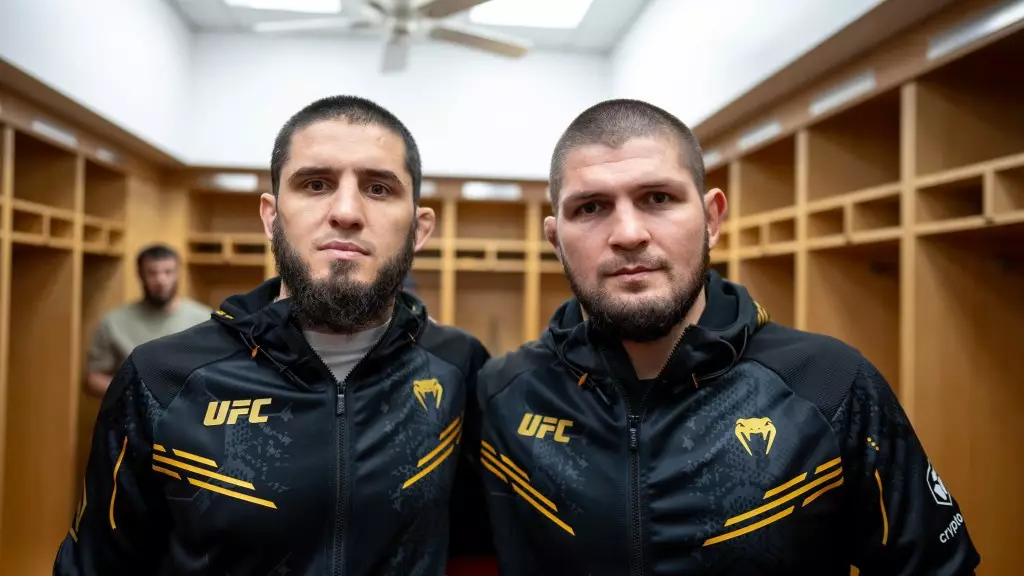In the high-stakes arena of UFC lightweight competition, the prospect of title defenses often spirals into a tangled web of politics and personal aspirations. Recently, former champion Henry Cejudo highlighted a crucial dynamic: Khabib Nurmagomedov’s potential influence on Islam Makhachev’s title defense against rising star Ilia Topuria. Nurmagomedov, an iconic figure in mixed martial arts history, openly expressed his reservations about Topuria receiving an immediate title shot, emphasizing fairness in the championship landscape. This raises questions about how much control one individual should wield over others’ opportunities in such a fiercely competitive sport.
The Importance of Title Challenger Hierarchies
Cejudo echoed Khabib’s sentiment, arguing that champions like Makhachev earn their stripes through hard-fought battles, and skipping the line undermines the meritocracy that is supposed to define mixed martial arts. While Topuria’s impressive 16-0 record is undeniable, the implications of granting an immediate title shot potentially cheapens the experience of other contenders who have endured the lengthy grind of the division. The essence of sport should be about merit and timing, and allowing Topuria to bypass established challengers may frustrate not only fans but also fellow fighters who have waited for their chance in the octagon.
UFC’s Promises and Cejudo’s Predictions
Despite Topuria’s statement that the UFC had promised him a title shot, Cejudo’s prediction that Khabib would advocate for due process serves to remind us how strategic matchmaking is within the organization. Often, fighters’ paths are affected by not just their performances but also the broader narrative woven by personalities like Nurmagomedov. As Cejudo theorizes, it might not simply be a matter of wanting to fight; Khabib’s assertion that Topuria must face the number one contender to earn his shot implies an embedded hierarchy that must be respected.
Shifting Focus to Other Contenders
Should Khabib prevail in swaying the decision-makers, Topuria might find himself facing one of the lightweight division’s stalwarts instead. Cejudo suggests a bout against Dustin Poirier, which not only makes sense given Poirier’s status but also revitalizes the division by pitting two marquee lightweights against each other. The distinct styles and fan affiliations could enhance UFC events, providing high-stakes drama that draws in audiences.
Furthermore, this situation is illustrative of the broader implications of fighter availability and willingness to engage with upcoming prospects, particularly when former champions are reluctant to face tough competition. Meanwhile, Makhachev’s possible matchup with Justin Gaethje, another elite athlete, underscores the unpredictability and excitement inherent in the UFC’s lightweight division.
In a sport where timing, strategy, and perceptions of fairness play crucial roles, fans and fighters alike will be watching how these dynamics unfold. The entanglement of individual ambition and a champion’s duty to a system that rewards perseverance complicates what could be straightforward bouts into a narrative-rich saga of its own. In navigating these waters, it becomes increasingly clear that competition in the octagon is often just one battle among many—a deeper struggle for legitimacy, respect, and the right to achieve greatness in the UFC.

